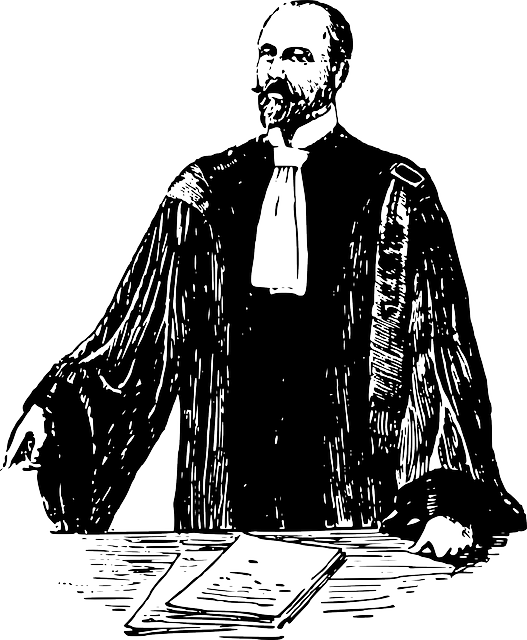The text delves into the complex challenges of finance crime investigations, where prosecutorial misconduct and ethical violations significantly impact the pursuit of justice. These probes uncover a wide range of financial crimes, from fraud to insider trading, involving intricate networks and sophisticated strategies for concealment. The section highlights the strategic maneuvering by entities under scrutiny and the meticulous efforts of investigators to unearth evidence. Key themes include the crucial role of general criminal defense attorneys in navigating these complex cases while upholding professional standards, the need for understanding legal and financial intricacies, and the severe consequences of convictions in high-stakes prosecutorial misconduct and ethical violations cases.
In the intricate landscape of finance crime probes, understanding the scope and nuances of these investigations is paramount. This article delves into the definition and common types of financial crimes, shedding light on the intricate web of activities that fall under scrutiny. We explore critical aspects like prosecutorial misconduct and ethical violations, providing insights into their far-reaching implications. Furthermore, it highlights best practices to ensure fair and transparent investigations, emphasizing the vital role of impartiality, integrity, and ethics in maintaining public trust.
- The Landscape of Finance Crime Probes
- – Definition and scope of finance crime probes
- – Common types of financial crimes under investigation
The Landscape of Finance Crime Probes

The landscape of finance crime probes is a complex web where ethical violations and prosecutorial misconduct intertwine, creating a challenging terrain for justice. These investigations delve into the darkest corners of financial institutions, exposing activities that range from fraud and money laundering to corruption and insider trading. The stakes are high in these high-stakes cases, as the consequences can shake the very foundations of respective businesses and impact the broader economy.
Avoiding indictment becomes a strategic game for entities under scrutiny, as legal teams navigate through intricate regulations and ethical guidelines. However, the pursuit of justice goes beyond mere avoidance; it involves thorough investigations that unearth evidence of misconduct, ensuring that those responsible are held accountable for their actions. This delicate balance between maintaining economic stability and upholding ethical standards is crucial in fostering a fair and transparent financial environment.
– Definition and scope of finance crime probes

Finance crime probes encompass investigations into illegal activities within the financial sector, including fraud, money laundering, and embezzlement. These inquiries often involve complex networks of individuals, institutions, and transactions, requiring meticulous scrutiny to uncover hidden illicit schemes. The scope includes not only corporations and financial institutions but also high-net-worth individuals who may utilize sophisticated strategies to conceal their involvement in criminal activities.
Prosecutorial misconduct and ethical violations play a significant role in finance crime probes. It’s crucial for lawyers, particularly general criminal defense attorneys, to navigate these intricate cases while upholding the highest professional standards. For his clients, avoiding indictment demands a thorough understanding of the law and evidence, as well as strategic planning to present compelling defenses that safeguard against unjust accusations, ensuring a fair and impartial outcome.
– Common types of financial crimes under investigation

Financial crime probes encompass a wide range of illicit activities within the financial sector, from fraud and money laundering to embezzlement and insider trading. Common types under investigation include white-collar crimes like accounting fraud, where individuals or corporations manipulate financial records for personal gain, and investment scams, which often prey on unsuspecting investors. Prosecutorial misconduct and ethical violations are significant concerns in these cases, as they can undermine the integrity of the justice system. For his clients facing general criminal defense charges, navigating these complex financial crimes requires meticulous attention to detail and a deep understanding of both legal and financial intricacies.
Additionally, probe targets may include banking practices that violate anti-money laundering laws, where institutions fail to report suspicious transactions or engage in knowing facilitation of illicit funds. These investigations often involve intricate financial networks and require extensive forensical accounting to trace the movement of illegal proceeds. The consequences for convictions can be severe, with significant fines, jail time, and damage to personal and professional reputations, underscoring the importance of robust legal representation in these high-stakes cases.
In conclusion, the landscape of finance crime probes is vast, encompassing a range of illegal activities within the financial sector. By understanding the common types of financial crimes and the scope these investigations cover, we can highlight the importance of stringent oversight and ethical conduct. While prosecutors play a crucial role in bringing financial criminals to justice, it’s imperative to address any instances of prosecutorial misconduct and ethical violations to maintain public trust and ensure fairness in the legal system.






